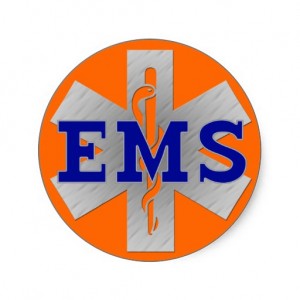 Emergency Medical Services, commonly referred to as EMS, is committed to offering acute medical care outside of medical facilities. EMS professionals provide care to individuals with injuries and illnesses and offer transportation to medical facilities as needed. They strive to provide urgent medical care and get patients to additional assistance as quickly as possible.
Emergency Medical Services, commonly referred to as EMS, is committed to offering acute medical care outside of medical facilities. EMS professionals provide care to individuals with injuries and illnesses and offer transportation to medical facilities as needed. They strive to provide urgent medical care and get patients to additional assistance as quickly as possible.
Individuals interested in a career in this field commonly ask what kind of training do I need to become an EMS professional? Becoming an EMS professional involves education, development of personal skills, and certification. Additionally, individuals must be at least 18 years of age and pass a criminal background check.
Education
A variety of postsecondary institutions and organizations around the country offer EMS courses. The courses are offered at different levels, including emergency medical responder, emergency medical technician, advanced emergency medical technician, and paramedic. The course requirements vary by institution and program. In general, emergency medical responders must complete at least 58 hours of education that covers initial care on site, such as bleeding control and CPR. Emergency medical technicians usually need 150 hours of education that covers care in the ambulance, such as oxygen therapy and defibrillation. Advanced emergency medical technicians must complete the basic emergency medical technician training and then finish an additional 150 hours. These individuals learn about more invasive care, such as starting IVs and administering medications. The paramedic training involves 1,200 hours of education and these professionals provide the most advanced care of EMS workers. They perform cardiac monitoring, intubation, and other advanced procedures. Paramedics must first become emergency medical technicians.
Personal Skills
EMS professionals must develop essential skills to lead successful careers. They must be committed to the care of others and compassionate, as they commonly need to provide emotional support to patients during emergency situations. They must be mentally stable to deal with stressful situations. They must also be able to remain calm and possess physical stamina to be on their feet for long periods of time. EMS professionals need interpersonal skills since they work with a wide variety of patients and are often a part of a team that must coordinate tasks according to patient needs. They must be active listeners to carefully listen to patients to determine the extent of their medical condition. And they must have the ability to think quick on their feet and have strong problem solving abilities to administer the proper care.
Certification
After finishing the EMS education, all states require individuals to pass an examination to become national registered. The test is referred to as the National Registry Exam offered by the National Registry of EMTs. The examination has both written and practical components. The entry requirements vary by level, but in general individuals must complete a state-approved EMS course that meets or exceed the national required education for each level. Typically, it must be less than two years since completion of the course.
Working as an EMS professional can be a very rewarding and lucrative career for individuals who are passionate about the field. Individuals who seek to work in this area should find accredited educational programs to get started.
 Follow
Follow